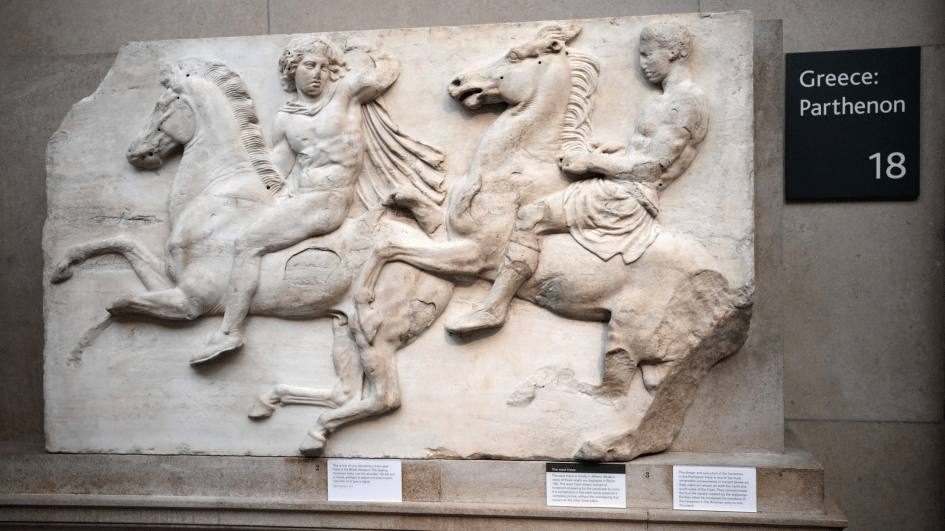UK archives show Parthenon marbles role in 2012 Olympics lobbying
LONDON

The U.K. government tried to help Greece secure the Parthenon Marbles on loan two decades ago in a bid to drum up support for London's 2012 Olympics' bid, according to files released on Dec. 29.
Just last month, the Elgin marbles caused a fresh diplomatic spat with U.K. Prime Minister Rishi Sunak axing a meeting with his Greek counterpart Kyriakos Mitsotakis at the last minute.
The 2,500-year-old sculptures were taken from the Parthenon temple at the Acropolis in Athens in the early 19th century by British diplomat Thomas Bruce, the earl of Elgin, and subsequently handed to the British Museum.
Greece maintains the marbles - a major draw for visitors at the world-famous London museum - were stolen, while the U.K. insists they were obtained legally and should remain on display in the British capital.
In the early 2000s, progress on resolving the thorn in bilateral ties appeared imminent.
Greece proposed a then-novel solution, suggesting the friezes return to Athens in the form of a long-term loan, bypassing the issue of ownership.
The country was keen for the sculptures to go on display in the Greek capital - at a new museum being built on the Acropolis - to coincide with the 2004 Olympic Games set to be held there.
At the same time, then-U.K. leader Tony Blair and his government were stepping up lobbying efforts to secure the 2012 Olympics for London.
Against that backdrop Sarah Hunter, Blair's lead adviser on culture, media and sport policy issues, sent him an April 2003 memo arguing "there are good reasons for us to change tack" on the marbles.
Several months earlier, Blair had discussed the loan proposal with his Greek counterpart Konstantinos Simitis, but had subsequently written to him saying "this is not an issue on which the U.K. govt [government] would seek to intervene" on.
London had long maintained it was a matter for the British Museum and its trustees alone.
But noting it could be a "powerful bargaining chip" in International Olympic Committee votes for the 2012 Games, Hunter now suggested the government "privately and publicly encourage" the museum "to find an accommodation over the next 12 months.”
The top aide acknowledged the Greek case had "become more sophisticated" with its loan plan and accused the museum of "blinkered intransigence to consider any compromises.”
She goes on to suggest supporting a recent proposal from former British foreign secretary David Owen for a U.K.-Greece treaty governing the loan arrangement.
"It seems sensible: Rational policymaking favors the Greeks," Hunter wrote, while adding the museum's trustees must ultimately make the decision.
Blair appears amenable, replying "yes" in a handwritten note on the memo.
He suggests putting Owen "in charge of negotiating this,” adding that the veteran politician could "probably help with the British Museum, whilst distancing it a little from government.”
However, the initiative appears to have quickly stalled, with the museum issuing a statement four months later in August 2003 saying "the trustees cannot envisage any circumstances under which they could accede to the Greek government's request.”
















